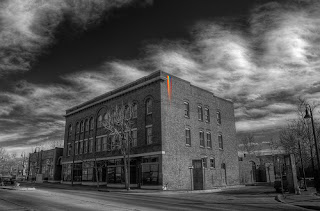A recent study issued by the Government Accountability Office (GAO) reports that vacant foreclosures across the country have risen 51% over the last decade, up from approximately 7 million in 2000 to 10 million as of April 2010. Some states have experienced more drastic increases (over 70%) than others for a variety of reasons. Thankfully, Illinois does not rank among the top 10 states with the highest foreclosure percentage increases. However, our Oak Park and River Forest foreclosure lawyers know that neighborhoods in the Chicago area have been struggling with the problems generated by high foreclosure numbers. The problem of vacant buildings has become so severe that Chicago and Cook County recently passed ordinances requiring lenders to bear the burden of maintaining their foreclosed properties.
An article in DS News explains that while the focus traditionally has been on lenders, local governments, many of which are dealing with serious budget concerns and some of which are bordering on bankruptcy, also have been saddled with significant financial pressure from the rise in home foreclosures. In conducting its analysis, the GAO sought to measure the causal effect of foreclosures on vacancy numbers, the types of costs associated with vacant properties, and the response of state and local governments to rising vacancies. For example, the GAO found that Fannie Mae and Freddie Mac reimbursed servicers and vendors over $953 million for property maintenance costs in 2010. But local governments also have experienced many unexpected expenses due to the foreclosure crisis.
According to the GAO, other studies have found that vacant foreclosed properties may reduce prices of nearby homes by as much as $17,000 per property. This costs municipalities millions of dollars in lost tax revenues. Also, local governments must take on the expense of ensuring that their ordinances are enforced—that means extra staff, systems, and programs. Public safety issues are also a problem, and vacant properties reduce the quality of life in Chicago neighborhoods.
Many reasons have contributed to the rise in vacant properties in big cities, including foreclosure rates, high unemployment, and declining populations.
In Chicago, our foreclosure defense lawyers know that efforts have been taken to minimize the costs and other negative effects associated with empty properties. (See our post on new Chicagoland ordinances to hold mortgagees responsible for foreclosed properties here and our post on Chicago’s program to turn vacant condos into affordable rentals here). Other cities have established incentive programs to encourage appropriate property maintenance or have created specialized housing courts to address vacant property and other housing issues. Other efforts include data gathering to more accurately identify vacant properties and rehabilitation or demolition of vacant properties.
Local governments also have called for increased federal funding and greater regulation of servicers’ role in managing vacant properties.
Our Oak Park foreclosure defense attorneys work hard to protect homeowners from unscrupulous lenders, but as the housing market continues to struggle, the effects of fraudulent mortgage activity and irresponsible lending practices have extended so much further. If you are interested in reading the GAO’s full report about the impact of property vacancies on local communities, it can be found online.
See Our Related Blog Posts:

Whether or not you are getting a lawyer to help you, you need to know what you are doing in your bankruptcy case so you don’t get burned.
ReplyDeleteChicago Foreclosure Defense